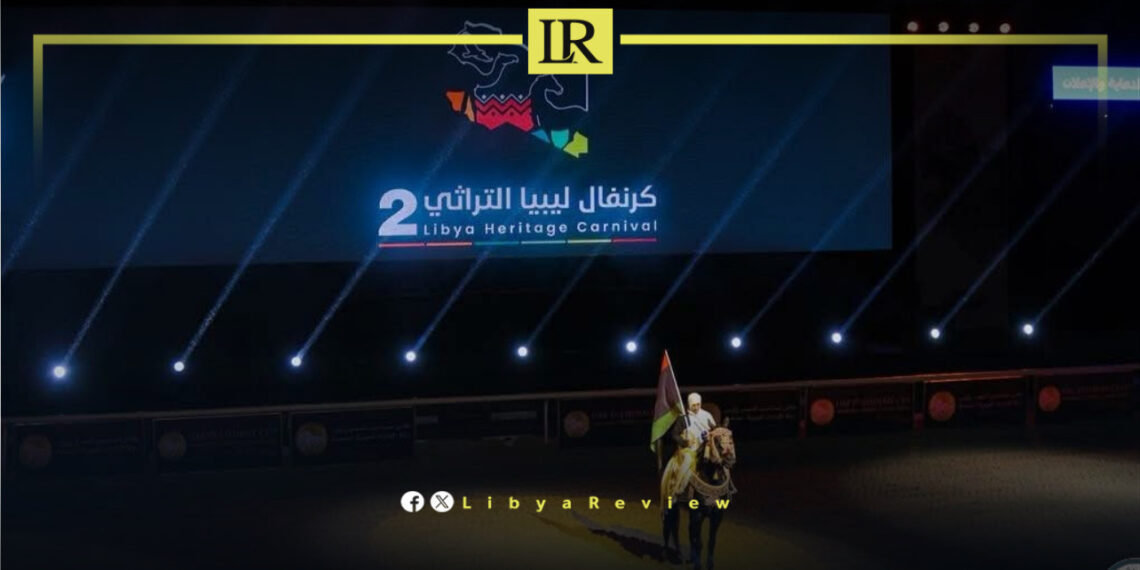Libya’s Prime Minister Osama Hammad took part on Saturday in the second edition of the Libya Heritage Carnival held in Benghazi. The event was attended by senior officials, including Director of the Office of the Commander-in-Chief of the Libyan National Army, Lieutenant General Ayoub Bousif, members of the House of Representatives, ministers, deputy ministers, and representatives from various sectors. Diplomats and guests from several Arab and friendly foreign countries also joined the celebration, along with cultural, social, and sports figures.
The carnival featured a wide range of cultural and heritage performances, as well as horse-riding competitions with both local and international participants. The event was organized under the supervision of Al-Watan Club for Shooting and Equestrian Sports as part of broader efforts to promote Libyan heritage and showcase its rich cultural identity on the national and global stage.
A highlight of this year’s edition was the hosting of the UAE President’s Cup for Purebred Arabian Horses for the first time in Libya. The competition took place at the Al-Watan Club track in Benghazi, as part of the 32nd edition of the global series. The inclusion of Libya in this prestigious championship underscores its growing presence among nations that value and preserve Arab cultural traditions and equestrian sports.
At the closing ceremony, Prime Minister Hammad honored the participating riders and competitors, commending their contributions to celebrating Libya’s heritage and promoting cultural and sporting events that enhance the country’s reputation across the Arab world and internationally.
Libya has been in chaos since a NATO-backed uprising toppled longtime leader Muammar Gaddafi in 2011. The county has for years been split between rival administrations.
Libya’s economy, heavily reliant on oil, has suffered due to the ongoing conflict. The instability has led to fluctuations in oil production and prices, impacting the global oil market and Libya’s economy.
The conflict has led to a significant humanitarian crisis in Libya, with thousands of people killed, and many more displaced. Migrants and refugees using Libya as a transit point to Europe have also faced dire conditions.
The planned elections for December 2021 were delayed due to disagreements over election laws and the eligibility of certain candidates. This delay has raised concerns about the feasibility of a peaceful political transition.
Despite the ceasefire, security remains a significant concern with sporadic fighting and the presence of mercenaries and foreign fighters. The unification of the military and the removal of foreign forces are crucial challenges.


